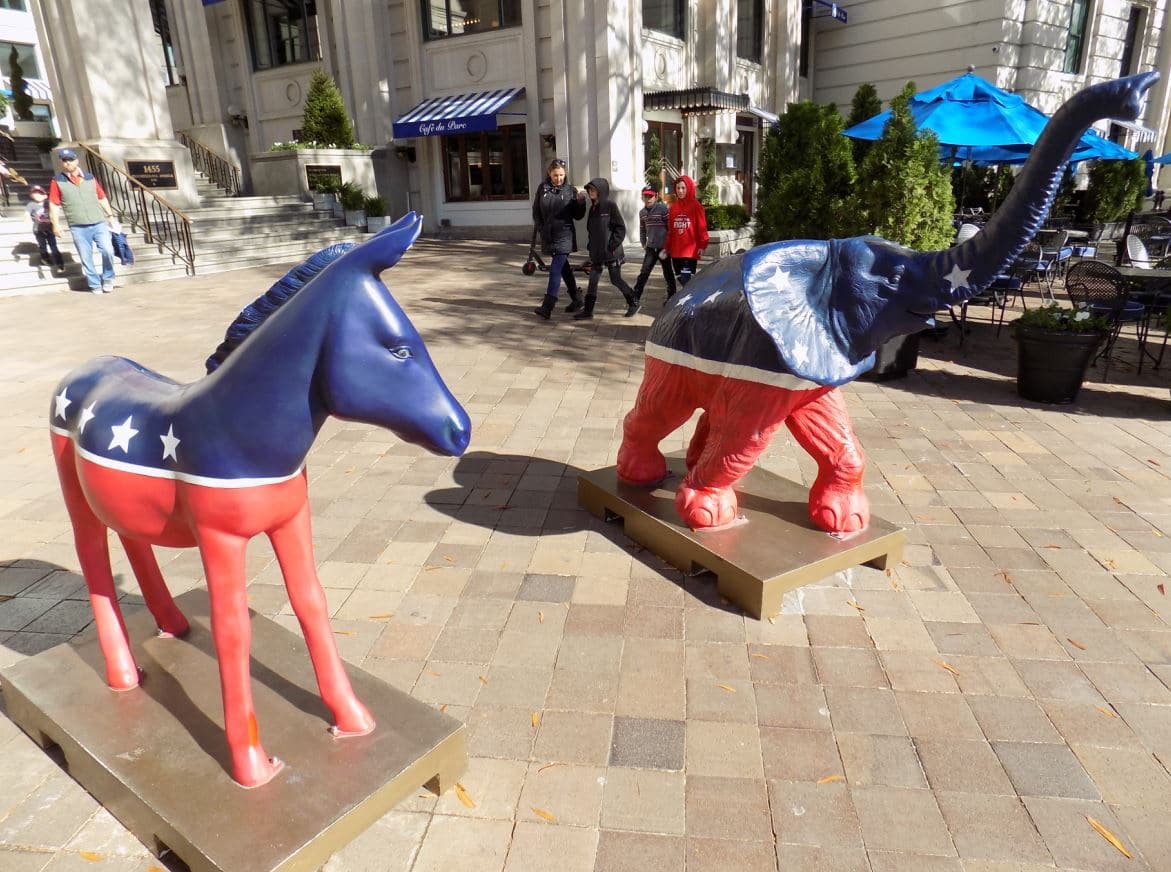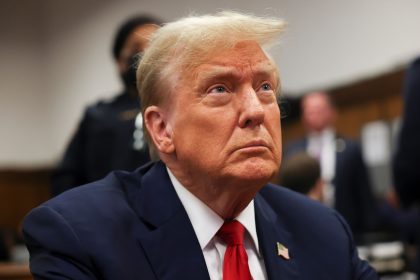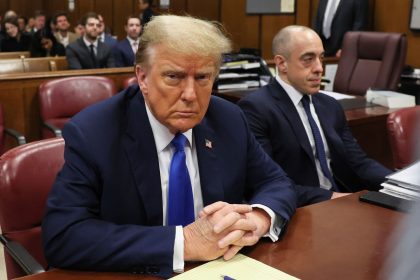The Democratic Convention Delegate Process Explained

Although most of us focus on the candidates running for president, in reality, the primaries and caucuses in which we vote are a process of selecting delegates in each state to send to their party’s national presidential nominating convention.
Once at those conventions, delegates cast their vote for a particular candidate based on the preferences of the voters in the state they represent.
Despite the importance of the convention, the actual rules that cover delegate selection and behavior are obscure even to seasoned political watchers.
On Tuesday, The Well News explained the Republican Party’s delegate selection and allocation process. In this, the second of a two-part series, we’ll take a look at how the Democratic Party does it.
The first big difference between the parties’ practices is magnitude — there are simply a lot more Democratic delegates and they are divided into two classes, which determines when their votes come into play.
This year, a total of 4,750 delegates are expected to convene when the Democrats hold their 2020 convention in Milwaukee, Wisconsin, July 13-16.
Of these, 3,979 will be pledged delegates and 771 will be automatic delegates — essentially this year’s model of the superdelegates that proved controversial in 2016.
To win the Democratic nomination, a presidential candidate must receive support from a majority of the pledged delegates on the first ballot: 1,990 pledged delegates.
If the convention is contested and goes to a second ballot or more, the automatic delegates get to vote. During this round of voting, a candidate needs at least 2,375 votes to secure the nomination.
Who Are These Delegates?
As is the case with the Republicans, Democratic delegates are either selected in primaries, caucuses, or local party conventions, or included because of their positions as elected representatives or members of the party leadership.
The number of delegates awarded to each state is determined by a formula that factors the state’s popular vote for the Democratic nominee in the previous three elections (2016, 2012, and 2008), the state’s electoral votes, and when the state’s primary is held.
Delegates are allocated proportionally based on the outcome of each state’s primary contest. A candidate is typically only eligible to receive a share of the pledged delegates if they win at least 15 percent of votes cast in a primary or caucus.
In addition to pledged delegates, there are alternate delegates for each state, the District of Columbia, Puerto Rico, the U.S. territories, and Democrats Abroad.
These alternates attend the convention but do not vote unless a pledged delegate is unable to attend.
Pledged Delegates
Pledged delegates are elected during primaries, caucuses, or party conventions, and must express either a presidential candidate preference or an uncommitted preference as a condition of their election.
The Democrats break these pledged delegates into three distinct groups:
- District delegates elected and allocated at the congressional or state legislative district level;
- At-large delegates elected and allocated on a statewide basis;
- Pledged PLEO delegates — party leaders and elected officials — who are typically selected in a similar manner to the at-large delegates.
Automatic Delegates
Automatic delegates (previously known as superdelegates) are typically members of the Democratic National Committee, Democratic members of Congress, Democratic governors, or distinguished party leaders, including former presidents and vice presidents.
Unlike pledged delegates, automatic delegates are free to support any presidential candidate of their choosing, and mindful candidates work hard to line up their support ahead of the convention.
Hillary Clinton did a good job of this in 2016. However, because some in the party felt this system gave Clinton an overwhelming advantage that wasn’t intended when the rules were written, the party formed a Unity Reform Commission to revise the Democratic nominating process.
At the conclusion of the party’s national convention on August 25, 2018, officials voted to adopt a measure banning automatic delegates from voting on the first ballot at a contested national convention.
“While superdelegates have never in history reversed the will of the voters, this proposal rebuilds trust and addresses even the perception that this could occur,” the party said in a written statement at the time.
What Happens to a Candidate’s Delegates if They Drop Out of the Race
As this year’s race for the Democratic presidential nomination illustrates, the candidate debates, primaries and caucuses are all mechanisms for winnowing down the field to an eventual nominee.
This begs the question — what happens to a candidate’s pledged delegates if their candidate drops out of the race?
This is a vague area in the DNC’s delegate selection rules. However, 13 states have established specific guidelines for the release of delegates either upon a candidate’s withdrawal or after a specific number of ballots have been taken at the national convention.
The states are Arizona, Connecticut, Georgia, Indiana, Kentucky, Massachusetts, Michigan, Minnesota, Nebraska, New Mexico, Oklahoma, Oregon, and Tennessee.
Most are straightforward. For instance Georgia states that “Any delegate to a national convention whose presidential candidate withdraws after being entitled to delegate votes pursuant to this article shall be an unpledged delegate to the national convention.”
At the Convention
The order in which presidential candidates have their name entered for nomination is determined by the party chairman in consultation with the chair of the convention and representatives of the candidates themselves.
Each candidate is entitled to 20 minutes for the presentation of their name in nomination and seconding speeches. The party rules note “demonstrations” on behalf of the nominees will not be permitted.
After the nominations have closed, the convention will proceed to a roll call vote by states, in alphabetical order, on the selection of a presidential candidate.
As already mentioned, only pledged delegates are permitted to vote during this roll call, but there is an exception: If a presidential candidate has been certified by the DNC Secretary to have obtained a number of pledged delegates equal to a majority of all pledged and automatic delegates to the convention, then the automatic delegates will also be permitted to vote on the first ballot.
In the event that a nominating contest moves beyond the first ballot of the presidential roll call, all pledged and automatic delegates will be permitted to vote for a presidential candidate on all subsequent ballots until a nominee is chosen.
Balloting will continue until a nominee is selected. The nominee becomes the party’s candidate for president upon the conclusion of their acceptance speech.
Related | The Republican Convention Delegate Process Explained
























